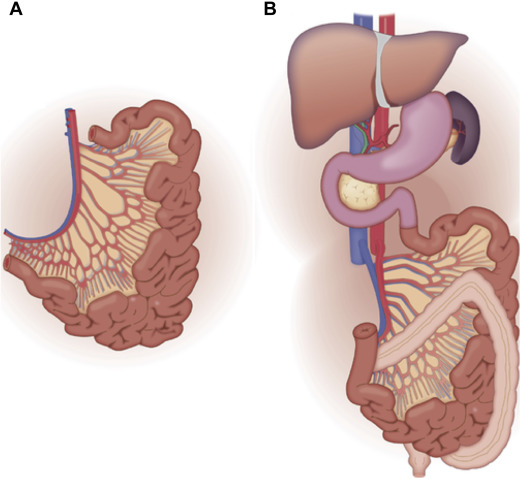Dr. Aniruddha Bhosale is a top and well-known surgeon for Kidney Transplants in Pune. He has participated in over 200 liver transplants, which include both living donor and deceased donor liver transplant surgeries, as well as Kidney transplants and pancreas transplants.
1. Kidney transplants
A kidney transplant is surgery done to replace a diseased kidney with a healthy kidney from a donor. The kidney may come from a deceased organ donor or from a living donor. Family members or others who are a good match may be able to donate one of their kidneys. This type of transplant is called a living transplant. People who donate a kidney can live healthy lives with one healthy kidney.
A person getting a transplant most often gets just 1 kidney. In rare situations, he or she may get 2 kidneys from a deceased donor. The diseased kidneys are usually left in place. The transplanted kidney is placed in the lower belly on the front side of the body.
What are the risks for kidney transplant?
- Bleeding
- Infection
- Blockage of the blood vessels to the new kidney
- Leakage of urine or blockage of urine in the ureter
- Lack of function of the new kidney at first
Who donates the kidney?
Kidney donors may be either living or deceased.
Living donors :
Because the body can function perfectly well with just one healthy kidney, a family member with two healthy kidneys may choose to donate one of them to you. If your family member’s blood and tissues match your blood and tissues, you can schedule a planned donation.
Receiving a kidney from a family member is a good option. It reduces the risk that your body will reject the kidney, and it enables you to bypass the multiyear waiting list for a deceased donor.
Deceased donors :
Deceased donors are also called cadaver donors. These are people who have died, usually as the result of an accident rather than a disease. Either the donor or their family has chosen to donate their organs and tissues.

2. Simultaneous Liver- Kidney Transplants :
Introduction :
The survival benefits from simultaneous liver-kidney transplantation (SLK) over liver transplant alone (LTA) in recipients with moderate renal dysfunction are not well understood. Moreover, the impact of deceased donor organ quality in SLK survival has not been well described in the literature.

3. Simultaneous Pancreas- Kidney transplants :
Simultaneous pancreas-kidney transplantation is the best treatment for diabetic patients with failing kidneys due to the onset of diabetic nephropathy or chronic kidney disease. The primary goal is to replace the pancreas and give complete independence to the patient from injected insulin. The transplanted pancreas is fully functional in not only producing insulin to control the recipient’s blood sugar levels, but also producing enzymes to support digestion in the gut. Thus, SPK offers a vastly improved quality of life (QoL) for the patient.
In SPK, the kidney and pancreas are removed from the deceased donor and given to the recipient who is fit for the operation. SPK is not a cure but is drastically beneficial in not only controlling diabetes but also replace the failing kidneys.

4. Small bowel transplants :
A small bowel (intestinal) transplant is an operation to replace a diseased or shortened small bowel with a healthy bowel from a donor. It is a complicated and highly specialized operation that is not commonly performed, although the number of procedures carried out has increased in recent years. These procedures are carried out only at specialist centres.
The small intestine or small bowel is the part of the gastrointestinal tract between the stomach and the large intestine and is where much of the digestion and absorption of food takes place. The small intestine has three distinct regions – the duodenum, jejunum, and ileum. It receives bile and pancreatic juice through the pancreatic duct, controlled by the sphincter of Oddi. The primary function of the small intestine is the absorption of nutrients and minerals from food.
Why small bowel transplants are carried out?
A small bowel transplant is an option for children and adults whose bowel has stopped working properly and who are being fed by total parenteral nutrition (TPN). This is where a person requires all their nutrition to be given through a drip into a vein because their bowel is unable to absorb nutrients from any food they eat.
While many people needing TPN can have this treatment at home without experiencing any significant problems, the long-term use of TPN can lead to serious complications such as liver disease and repeated infections.

5. Multivisceral transplants :
A multivisceral transplant is one in which the intestines are replaced, along with the liver and/or spleen, and sometimes the stomach.
Indications for Multivisceral Transplant
The following symptoms indicate the need for a multivisceral transplant:
● Loss of two or more of the six primary central venous accesses (jugular, subclavian, and femoral)
● Episodes of catheter-associated infections, two or more per year
● Fungemia
● Shock or trauma
● Adult respiratory distress syndrome
● Refractory hydroelectrolytic disorders


